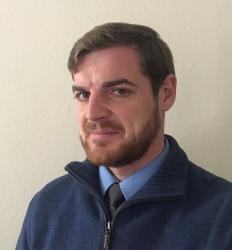When I lived in Rome I taught a religious education class for a year, preparing kids for their first Communion. When they found out I was American, some of them were confused as to why I would come all the way across the Atlantic to study in Italy. In response I tried to point out that while they were used to the beauty of Rome, the closeness of the Pope, and all the rest, for those of us who didn’t grow up there it was something quite special to be able to come.
Not a perfect image of what I want to say, perhaps, but I hope it can be helpful. To generalize—we’ve simply gotten used to so many things. Just think of an airplane, for instance—how incredible is it that a tube of metal can carry more than 500 people halfway around the world in less than a day? And not only is it possible, it has become so commonplace that we forget how marvelous and complex it is. For instance, a single Airbus A380 airliner has more than 320 miles of wiring. And that’s just one fact about one plane. And this is not to mention the vast web of organization and inspection and planning and reporting that goes into commercial flight. And despite headline-grabbing crashes, the overall safety record is impressive. The whole endeavor is stunning, really, and yet even when we’re flying we rarely give it so much as a thought.
Anyway, this isn’t meant to be a panegyric to flying, but I bring it up as one example of the wonders that surround us, wonders that witness to man’s greatness. We have been created in the image of God, and this image includes, of course, God as Creator. Created in God’s image, we can, as it were, create in God’s image. We’re often told to look at how amazing nature is, and that’s true, but we’re not always told to look at how amazing man is in his creativity. Man has tremendous gifts and can work with creation in remarkable ways. The eighth psalm expresses this memorably:
“What is man that you are mindful of him, and a son of man that you care for him? Yet you have made him little less than a god, crowned him with glory and honor. You have given him rule over the works of your hands, put all things at his feet…” (Ps 8: 5-7).
The point of all this isn’t to be egotistical and glorify ourselves; the point is to recognize our participation in God’s creative action as a manifestation of God’s own goodness and power. The same psalm begins and concludes: “O Lord, our Lord, how awesome is your name through all the earth!”
Last month after Paris’s Notre Dame Cathedral was devastated by fire, I commented on how the “faithful cross” bears witness to the sacramentality of nature—in other words, the “vocation” of nature to be used for our benefit, in imitation of how God uses natural means for his own divine ends. At the end of each day of Creation in Genesis we read, “God saw that it was good.” Creation—of which man is part—is good because God has created it, not simply because God says it is good. The sacramentality of all God has created is one effect of this inherent goodness.
This may not sound very concrete, and perhaps it could be more so. Nor do I mean to say that everything man does to nature is good—the very goodness inherent in nature demands that we treat it with respect. But I do think that it does us good to step back and not take our capabilities for granted. When we see a beautiful mountain or a sunset, we stop and look, and rightly so. Maybe once in a while we should stop and look at a car or a kitchen tap in a similar way.
In Willa Cather’s Death Comes for the Archbishop, Father Vaillant offers a memorable take on miracles: “The Miracles of the Church seem to me to rest not so much upon faces or voices or healing power coming suddenly near to us from afar off, but upon our perceptions being made finer, so that for a moment our eyes can see and our ears can hear what is there about us always.” Wise words to keep in mind.
(Photo credit: Unsplash.)

